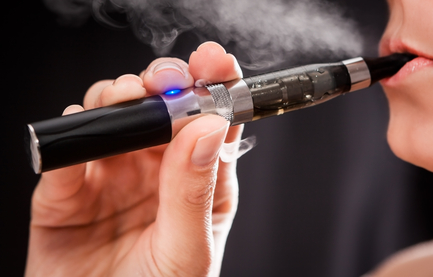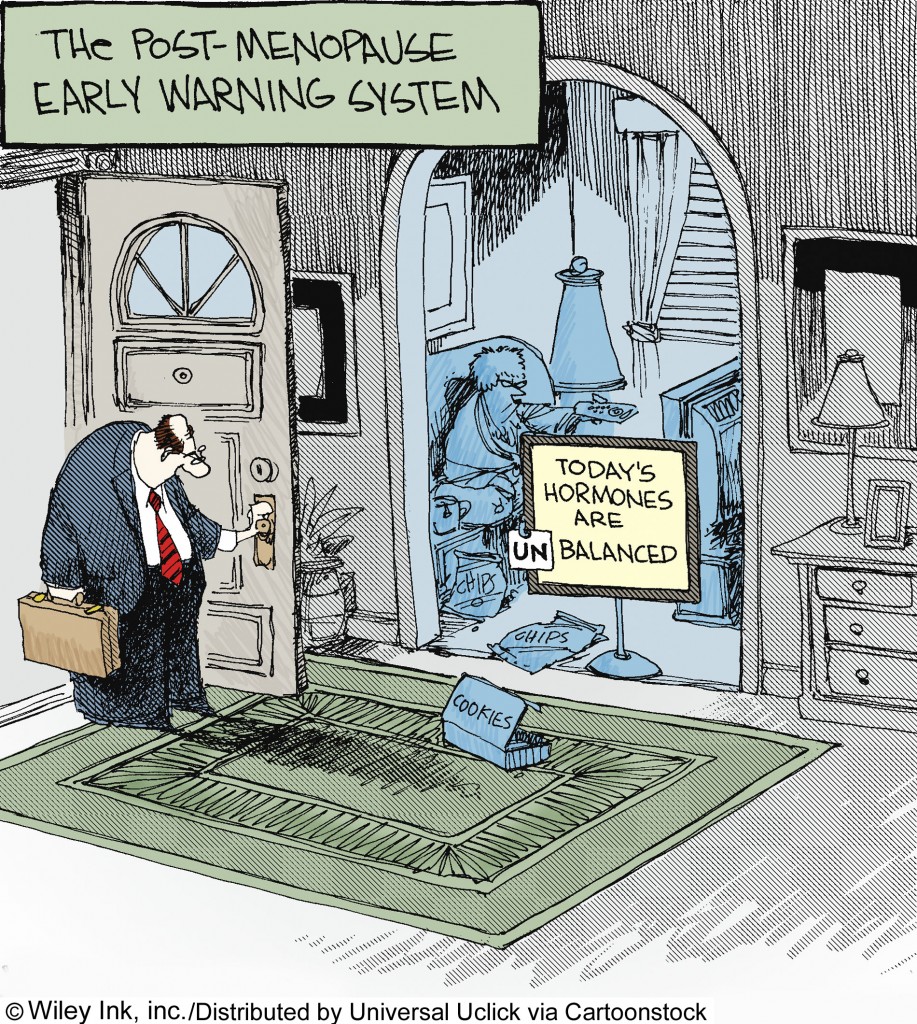Guyside: Getting testy about testosterone
 There’s no doubt that men think about the effects of aging on their bodies. And if there were, a viewing of ads for hair colouring, hair thickening agents, or erectile dysfunction drugs would quickly convince you. You could be a new man!
There’s no doubt that men think about the effects of aging on their bodies. And if there were, a viewing of ads for hair colouring, hair thickening agents, or erectile dysfunction drugs would quickly convince you. You could be a new man!
And as regular Flashfree readers will know, one of the things that’s been touted as a solution to the woes of the aging male is testosterone replacement therapy.
The basic idea is that men may have a condition that’s referred to as “Low T.” And so a gel, a patch, a tablet or an injection may bring you back to a more energetic, athletic, virile condition. The pitch has been made more and more convincingly, by all accounts: an Australian research team found that the sales of testsosterone treatments went from $150 million in 2001 to $1.8 billion in 2012.
That’s a 1200% increase. The Australian research indicated that the amount of testosterone being prescribed far outstripped the incidence of “male menopause” or andropause. So what’s going on? Oh, I suspect there’s a generous helping of vanity involved here.
But if it were simply a matter of making men feel better about themselves, it would just be a waste of money. A growing body of research evidence is suggesting that treating Low T may increase the risk of cardiac events. The most recent, an article from the open-access journal PLOS ONE, suggests a substantial increase in the risk of myocardial infarction — what we normally refer to as a heart attack — with the use of testosterone, for men under and over 65 years of age.
I’m sure there are men with diagnostic criteria that would make testosterone therapy an appropriate choice, with a careful calculation of the risks and benefits. But if my hair’s getting a little thin, if I’m not feeling as “macho” as I once was — do I really want to be using a hormone supplement that could put me at risk of a heart attack?
It’s very easy to succumb to marketing-based pitches that appeal to what we think we need as men. But it’s important for us to not jump at those pitches without thinking about the risks and the benefits carefully.
There was a rush to use estrogen and progesterone to help women with symptoms of menopause several years ago, and then a panic when those therapies were associated with increased cardiac symptoms.
I’m no doctor, and I’m certainly not saying that nobody should be using hormones in this way. But I do think that we should think through ALL of our medical decisions and ensure we’re taking the risks seriously.
(photo: CC-licenced image by Flickr user Ed Schipul)
Read MoreSmoking and early menopause
I’m not going to mince words; if you are white and a current smoker, it’s time to stop. Not only are you risking a host of illnesses like lung cancer and heart disease, but you may also be plunging yourself into early menopause.
This is not the first time that I’ve written on this topic and it’s likely it won’t be the last. A few years ago, I shared that in a thorough review of 109 published studies, researchers have found the following:
- Current smokers appear to enter menopause anywhere from 2.5 months to 2.5 years earlier than non-smokers and have 1.3 to 1.7 times greater odds for early menopause
- Former smokers appear to start menopause as much as 2 years earlier than non-smokers, with the risk ranging from 30% to as high as 80%
- Although there is not a lot of information on the severity of smoking habit and menopause (i.e. number of cigarettes smoked daily), there is some indication that women who smoked more than 20 cigarettes daily were likely to start menopause as much as 2 years earlier than women who smoked 11 to 20 cigarettes daily
- The relationship between number of years having smoked and early menopause is unclear
Recent study findings from University of Pennsylvania researchers add to the current knowledgebase on smoking and early menopause, revealing that genetics may play a role. And, while data have already shown that smoking increases the risk of early menopause among women of all races, it now looks as though white women who smoke and have certain genetic variants are especially at risk. In fact, when researchers conducted lab studies on blood drawn from over 400 women enrolled in the ongoing Penn Ovarian Aging Study, they found that white women who reported that they were heavy smokers (at least a pack a day) and whose DNA showed a variation of specific genes (CYP3A4*1B ) entered menopause in almost half the time period as their light smoking (less than one pack daily) and non-smoking peers.
In stark numbers, these women entered menopause an average of 5 years after the entering the study, compared to 11 and almost 14 years, respectively for light and non-smokers. Even more striking was the fact that the women in the study were between the ages of 35 and 47. Women who carried another gene variant — CYP1B1*3 — also had earlier menopause but the contrast to their peers was not as striking.
Smoking exposes women to a variety of toxic chemicals and the implicated genetic variant itself results greater estrogen degradation and possibly even activates chemicals known as PAHs– polyaromatic hydrocarbons — carcinogens in cigarettes that have been shown to be toxic to immature egg cells.
Experts estimate that more than 20 million women in the United States are current smokers. And this figure only applies to combustibles. Personally, I have concerns about the upsurge in e-cigarettes, especially among women and particularly among 18 to 24 year olds who have reported trying them. The Centers for Disease Control reported that in 2012, 7% of students in grades 6 to 12 had tried e-cigarettes. And while current data suggest that nicotine delivered by vapor should theoretically carry less risk than cigarettes, less is known about the chemicals used to vaporize that nicotine and the long-term ills that they may cause.
The bottom line is that if you still smoke and you are in your 30s or early 40s, you are setting yourself up for an early entry into menopause. While a few hot flashes or mood swings may not frighten you, other associated issues like bone loss, increased risk for heart disease and disease and stroke might. More importantly, if you are white and smoking, you may consider signing up to have a DNA evaluation.
I know firsthand how difficult it is to stop smoking. But the risks truly outweigh the benefits of the instant gratification that a long pull on a cigarette can deliver.
Read More
Early menopause – is there a silver lining?
Early menopause (menopause before age 40) is often viewed as a kiss of death, especially among women who desire children (or more children) or rightly feel that it’s not yet ‘their time.’ More importantly, early menopause has been linked to a number of serious health conditions, including osteoporosis, heart disease and osteoporosis. But there is good news in the mix: it appears that early menopause may possibly reduce the risk of breast cancer in women under the age of 50. In fact, in a study aptly named the Two Sister Study, researchers compared 1,422 women with breast cancer who were diagnosed before age 50 and 1,669 case ‘sisters’who were free of breast cancer. The women were asked if they had experienced hot flashes, poor sleep, night sweats, irritability or depression and were asked specifically about the age when these symptoms first began. All participants were similar with regard to race, education, childbirth, breastfeeding experiences, cigarette smoking and alcohol intake.
Almost a third of the women who had menopausal symptoms before their they were either diagnosed with breast cancer or before their first interview. These women were likelier to have had a hysterectomy. And 30% who had hot flashes before the average age also reported that they had used hormone replacement therapy. Most importantly, however, women who had menopausal type symptoms before the age of 50 had half the odds of their peers of developing breast cancer, in particular, estrogen-positive breast cancer. This protection tended to decline the older that women became.
What do these findings mean? Undoubtedly it is important to consider factors that could influence the findings, such as age at first menopause or first birth, BMI, use of hormones, drinking and smoking. None of these variables appeared to affect the results. Second, self-reports are sometimes not entirely accurate yet the researchers accounted for this bias in their analysis.
So, today, I am reporting some quite good news. Early menopause can be devastating. But it may confer important protection against breast cancer and that is a very good thing!
Read MoreWednesday Bubble: Trick or…
Treat?
This Halloween, you may want to take a look at the ingredients before you apply your make up. In fact, researchers from Washington University in St. Louis reported last week that certain chemicals found in make up and plastic — pthalates — may actually trigger early menopause. On average, the findings, which are based on blood or urine samples from roughly 5,700 women, showed that higher levels of pthalates led to significant disruptions in women’s endocrine systems that were linked to starting menopause as much as 2.3 years earlier. And in some women, menopause began as much as 15 years earlier than average.
Speaking at last week’s American Society for Reproductive Medicine Annual Meeting, lead study author, Dr. Natalia Grindler, cautioned that the findings are too early to draw any firm conclusions. However, this is not the first time that pthalates have been linked to adverse effects, and in fact, they have been closely watched and regulated for years now.
This year’s treat? Read the label. It might scare the bejeesus out of you! Even better? Sign up for the Environmental Working Group’s Skin Deep Cosmetic Database. This invaluable resource is being updated but is scheduled to be accessible soon. Finally? This time, beauty is really skin deep!
Read More
Wednesday Bubble: up in smoke
When I first posted this piece in 2008, it generated a lot of comments and a lot of concern, mostly among my contemporaries, who, like me, are former smokers. But since 2008, the one factor that consistently appears to be linked to menopause (and even early menopause) is smoking. Hence, I feel that it’s important to repost this – not only for my contemporaries but for those of you who continue to engage in the tobacco habit.

I remember the first time I had a cigarette. It was a Kool, purchased surreptitiously from the candy shop across the street from McKinley School. The year was 1969 and I was eight years old.
Yes, I said eight!
It used to be cool to smoke. My girlfriends and I would pretend we were in the teachers’ lounge (remember those?). By the time I got to college, I switched to clove cigarettes. And then afterwards, Marlboro Lights. I was up to a pack and a half a day by the time I stopped smoking. At the age of 30.
This means that I smoked, on and off, for 22 years.
At the age of 46, I had my first night sweat. I turned 47 this past May, and started to address my perimenopausal symptoms more seriously. And started this blog.
You may wonder why I’m sharing these intimate details of my covert and then overt smoking life.
Researchers say that first- and second-hand smoking not only increases the risk for death from heart disease and cancer, but may also significantly increase the risk for starting menopause at an earlier age (i.e., around age 45 rather than the average age of 51).
Data from a cross-section of 5,029 women aged 25 and older participating in the National Health and Nutrition Examination Survey III have shown that women who were current smokers (as measured by self-reports and blood levels of nicotine) started menopause at a mean age of 47, while women in service industries who were exposed to nicotine in their jobs started menopause at a mean age of 46.
Black women who had been regularly exposed to cigarette smoke had 12 times the odds of other racial groups of an earlier menopause age compared with smokers and nonsmokers who had not had any exposure. The investigators attributed this significantly increased risk among Black women to the body’s inability to clear nicotine from the blood as quickly as their peers.
The purpose of this study was to demonstrate that women in the workplace who are exposed to second-hand smoke are at increased risk for many of the same diseases as smokers. They’ve now added early menopause to this list.
What is less clear, however, is the risk for “former smokers,” since they were taken out of the analyses.
Makes you wonder if many of us who are former smokers or were exposed to second-hand smoke on a regular basis in our homes (a good percentage of women our age, as my sister in law pointed out), are at a higher risk as well.
Sort of like poster children, right?
Read More










